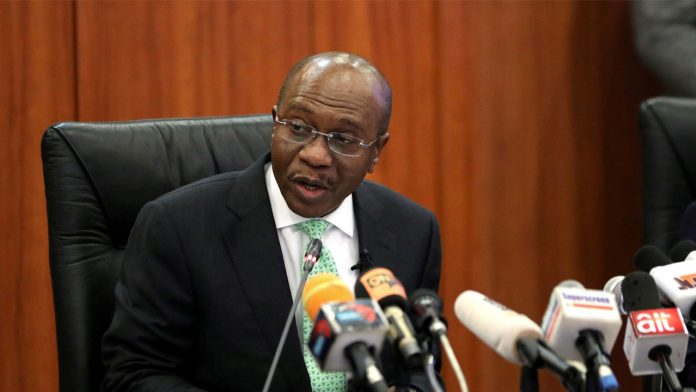The repatriation of export revenues into the country grew by 40% from three billion dollars in 2021 to 5.6 billion dollars by the end of 2022, according to Mr. Godwin Emefiele, Governor of the Central Bank of Nigeria (CBN).
Emefiele made this statement on Tuesday in Lagos during the bi-annual RT200 Non-Oil Export Summit, which had as its topic “RT200: Challenges and Prospects to Success.” He continued by saying that the outlook for 2023 was equally promising, with good figures.
The third summit in the series aims to exchange cutting-edge concepts for increasing Nigeria’s non-oil export revenues. Additionally, it makes sure that the money made from them is used as efficiently as possible for Nigeria’s economy.
Over the next three to five years, the CBN’s newly launched RT200 FX Programme seeks to generate 200 billion dollars in foreign exchange revenues from non-oil proceeds. A five-point agenda serves as its foundation.
Emefiele claims that since the RT200 program’s inception in February 2022, export proceeds repatriation has advanced significantly.
“It was only $62 million when we began since we were collecting quarterly data; by the second quarter, which ran from April to June, it had climbed to almost $600 million.
It increased to over $900 million by the third quarter, which is July through August or September. The program resulted in a 40% increase in repatriations, from $3.0 billion in 2021 to $5.6 billion at the end of 2022, according to data that is now available.
The momentum for 2023 is displaying both remarkable numbers and promising futures. “A total of US$1.7 billion was repatriated to the economy in the first quarter of 2023, while approximately $790 million has been sold at the Investors and Exporters window year to date,” he said.
Emefiele said that the remaining revenues were still in the exporters’ export domiciliary accounts. The proceeds, he said, could not and would not be qualified for the refund since they were not sold via the Investors and Exporters window (I&E).
He exhorted people who had export revenues in their domiciliary accounts to sell them at the I&E Window in order to receive the rebate.
“We keep hearing cases of people trying to sidestep the process as much as possible,” the CBN governor stated.All I can do at this point is make a request to those of us who wish to export without documentation to try as hard as we can to stop doing so.
To make sure that we need to nip the occurrences of exporting without documentation in the bud, we will continue to engage customs, the Nigeria Ports Authority, and the shipping lines and agents.
“What this does is lower the country’s potential export earning potential.” Emefiele recalled a meeting the bank had with the shipping lines from roughly three years ago and added, “I had said that the CBN will be beaming searchlight on undocumented shipments during that meeting at the CBN in Lagos.
He advised exporters to use the meeting as an opportunity to call out banks that were unresponsive to them. “So that they can ask the banks to be more accommodating, because by doing so, we are able to source export proceeds that boost our economy,” he said.
“We can produce export revenues and find export proceeds that will benefit our economy. That eliminates our reliance on the Central Bank of Nigeria as a source of foreign currency to pay for our imports. It’s a dream, but I hope it materializes quickly.
Lagos State Governor Babajide Sanwo-Olu praised CBN for starting the initiative and said it was a crucial step for diversifying the economy.
According to the governor, it would also improve the non-oil sector’s ability to produce more foreign exchange revenues, spur economic growth, and stabilize the economy as a whole.
The Commissioner for Economic Planning and Budget, Mr. Samuel Egube, acted as Sanwo-Olu’s representative. The summit’s theme, according to the governor, was appropriate and quite educational.
He claims that it has given decision-makers and other stakeholders in the non-oil sector the chance to evaluate the success of the strategy in comparison to the anticipated result. He invited attendees to consider all suggestions and come up with solutions to some of the problems, such as the “Japa syndrome.”













